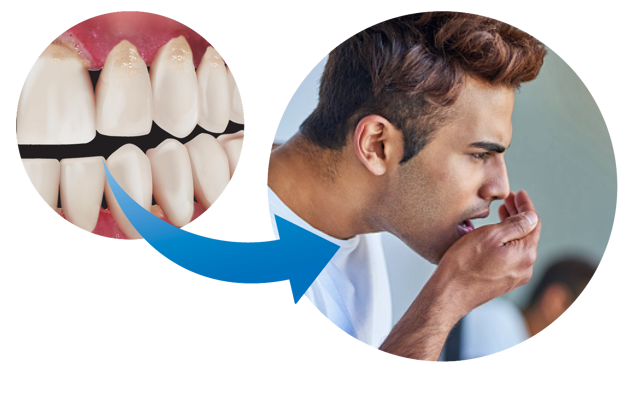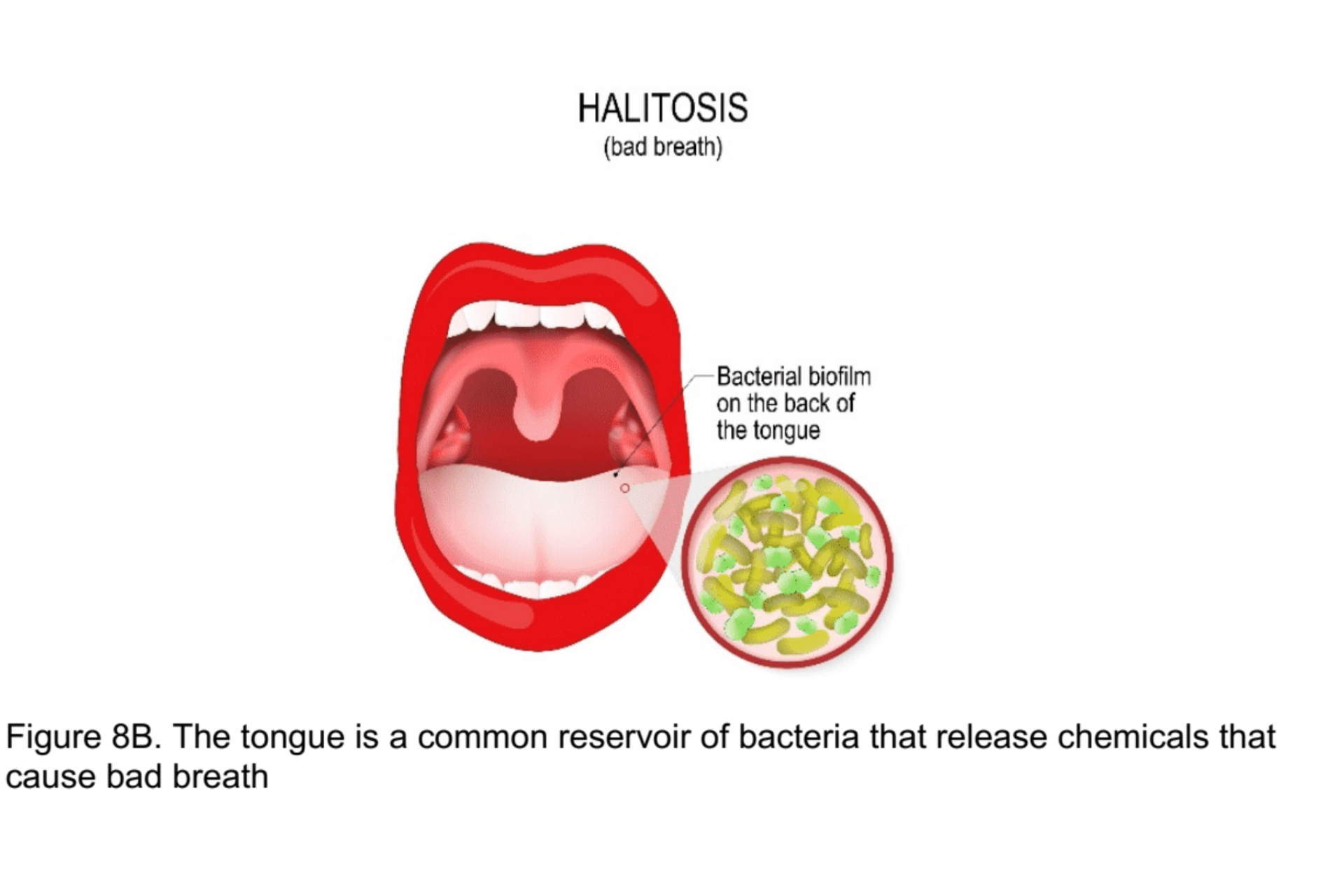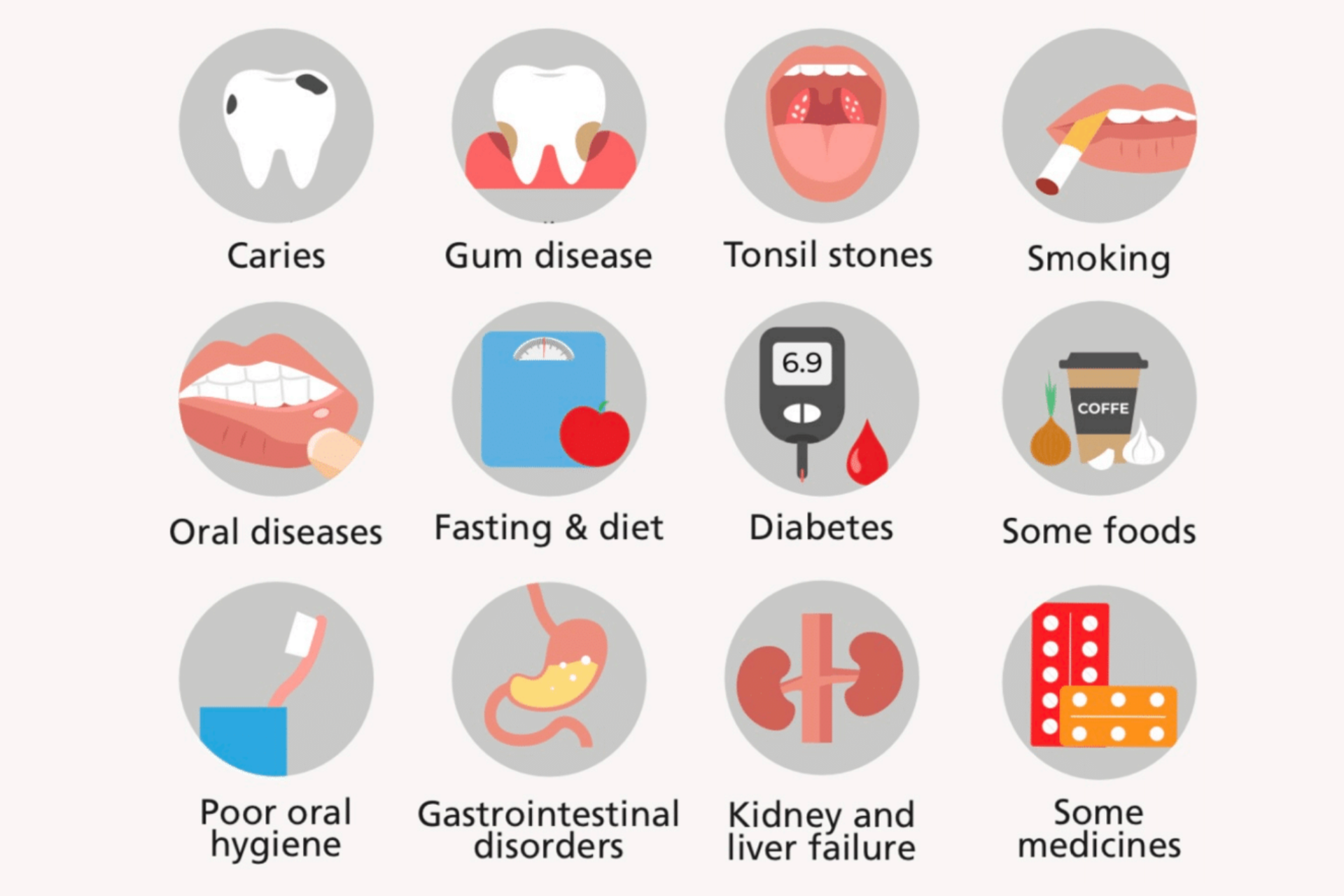Gum Diseases and Halitosis

Gum Diseases and Halitosis
Halitosis or bad breath is a common and sometimes embarrassing problem that manifests as unpleasant mouth odour.
Intra-oral conditions are the cause of 80-85% of bad breath. Gum disease is characterised by huge increases in bacteria that produce volatile sulphur compounds (VSCs), which are responsible for the smell. The top of the tongue is a reservoir for these bacteria as are gum infections (Figure 8B). There are other compounds produced by bacteria in the mouth that also contribute to bad breath.


Morning bad breath is caused by several factors, significantly snoring and mouth-breathing resulting in oral dryness. Stagnation of saliva and breakdown of food particles trapped in between teeth can also be a source. Alcohol consumption also contributes to oral dehydration and bad breath.
Causes of halitosis include:
- Gum disease
- Tooth decay
- Dry mouth
- Other mouth infections-eg tonsillitis/ tonsil stones
- Smoking
- Alcohol
- Diet–certain foods
- Obesity
- Medications which dry the mouth
- Anxiety and Stress
Extra-oral factors than can cause halitosis include:
- Foreign body in nose or ears (particularly children)
- Gastrointestinal disorders such as:
Reflux (GERD), gastric & peptic ulcers, and GIT disease and obstruction.
- Some medical disorders such as diabetes mellitus; liver disease; metabolic disorders
- Diet (fasting) “ketone breath”
- Respiratory infections of the paranasal sinuses, upper respiratory tract, and lungs

Treatment of halitosis
As most of the bad breath is oral a visit to the dentist is necessary. If you are diagnosed with periodontal (gum) disease, you may be referred to a Periodontist for deep cleaning or “debridement”. Management will depend on the cause but may include treatment of gum disease, restoration of decayed teeth, root canal therapy or rarely, extraction.
Good oral hygiene can reduce bad breath. Twice daily toothbrushing and use of interdental brushes and/or floss between your teeth are needed. Sometimes tongue cleaning is recommended as well as cleaning of dentures or orthodontic retainers.
Stimulating saliva flow through using chewing gum, drinking lots of water to remain hydrated, stopping smoking and maintaining a healthy diet especially reduction in alcohol will all help.
If you breathe through your mouth especially at night, clean your teeth thoroughly before bed and avoid sugary and sticky foods before bed.
If you have a dry mouth, you should use a fluoride toothpaste as dry mouth predisposes to root surface decay.
Do medications & mouth rinses work?
The best evidence supports effective tooth brushing and cleaning in between the teeth. Most sprays, rinses, mints, and rinses only have a short-term masking effect. The evidence supporting the efficacy of mouth rinses for treating halitosis is very limited, whether inhibiting VSC production or neutralising VSCs.
Management of extra-oral causes
If all oral causes of bad breath are excluded, then systemic causes may need to be ruled out and this requires a visit to your medical practitioner for further investigation.
Authors:
Dr Rachel Garraway
Dr Kaye Kendall